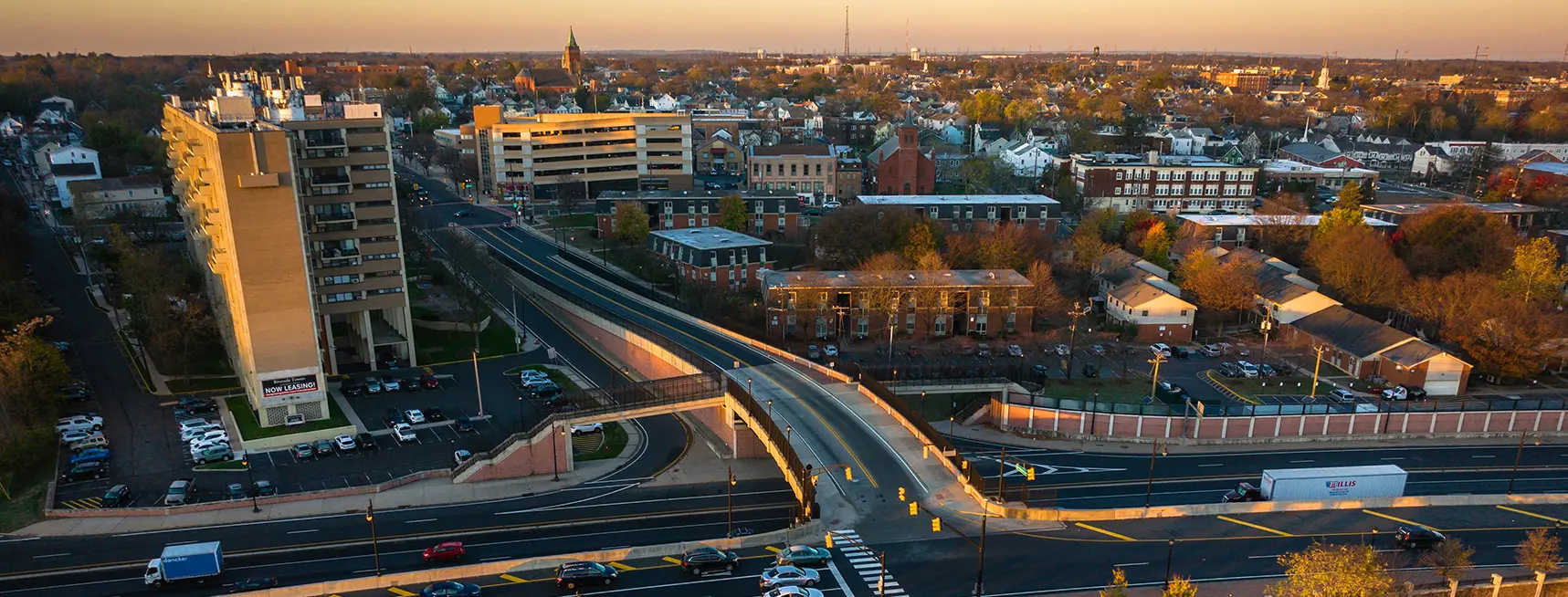Welcome to Meet The Landlord’s comprehensive FAQ guide on leasing a warehouse in New Jersey. Whether you’re a business owner seeking to expand, a startup navigating your first lease, or an established company considering relocation or expansion, understanding the intricacies of warehouse leasing is crucial. New Jersey, with its strategic location near major metropolitan areas and extensive transportation networks, is a prime spot for warehousing and distribution. This guide aims to address the most common queries and concerns you might have about the leasing process in this dynamic state. From deciphering lease terms to understanding compliance and zoning regulations, we cover essential topics to help you make informed decisions. Our goal is to demystify the leasing process and provide you with the knowledge needed to secure a warehouse that aligns with your business objectives and operational needs in the Garden State.
Get Connected to a LandlordTable of Contents
01. What Are the Typical Lease Terms for a Warehouse in New Jersey?
02. How is Warehouse Lease Pricing Determined in New Jersey?
03. What Are the Common Types of Warehouse Leases Available?
04. What Should You Look for in a Warehouse Location in New Jersey?
05. What Is Included in Warehouse Maintenance, and Who is Responsible?
06. How Do I Negotiate the Best Lease Terms for a Warehouse?
07. What Insurance Requirements Are There for Leasing a Warehouse in New Jersey?
08. Can I Sublease a Portion of My Warehouse Space?
09. What Are My Options if I Need to Expand or Downsize My Space?
10. How Are Utilities and Other Operational Costs Handled?
11. What Security Measures Should Be Considered in a Warehouse Lease?
12. What Happens if I Need to Break the Lease Early?
13. Are There Any Tax Benefits or Incentives for Leasing a Warehouse in New Jersey?
14. How Do I Handle Disputes Related to the Warehouse Lease?
What Are the Typical Lease Terms for a Warehouse in New Jersey?
Lease terms typically range from 3 to 10 years, with options for renewal. Early termination clauses may be included but often come with penalties.
Back to Top
How is Warehouse Lease Pricing Determined in New Jersey?
Pricing is influenced by location, warehouse size, facilities provided, and market demand. Prices may vary significantly between urban and rural areas.
Back to Top
What Are the Common Types of Warehouse Leases Available?
Common types include:
- Gross Lease: Tenant pays a flat fee; landlord covers most expenses.
- Net Lease: Tenant pays base rent plus a portion of the property’s expenses.
- Modified Gross Lease: A mix of gross and net lease elements.
What Should You Look for in a Warehouse Location in New Jersey?
Look for easy access to major highways, proximity to your supply chain and customers, and adherence to local zoning laws for warehouse use.
Back to Top
What Is Included in Warehouse Maintenance, and Who is Responsible?
Typically, tenants are responsible for internal maintenance, while landlords handle external and structural repairs. Terms can vary, so it’s important to clarify in the lease.
Back to Top
How Do I Negotiate the Best Lease Terms for a Warehouse?
Focus on lease length, renewal options, rent escalation clauses, and maintenance responsibilities. Engaging a commercial real estate lawyer or broker can be beneficial.
Back to Top
What Insurance Requirements Are There for Leasing a Warehouse in New Jersey?
Tenants generally need general liability and property insurance. Additional coverage may be required based on the warehouse’s use.
Back to Top
Can I Sublease a Portion of My Warehouse Space?
Subleasing is often subject to landlord approval. Review your lease for specific terms and conditions regarding subleasing.
Back to Top
What Are My Options if I Need to Expand or Downsize My Space?
Leases may include expansion clauses or offer flexibility to occupy additional space. Downsizing options are less common and may incur penalties.
Back to Top
How Are Utilities and Other Operational Costs Handled?
Tenants often pay for utilities either directly or as a part of the lease. Operational costs, like security and waste management, can be tenant or landlord responsibilities, depending on the lease.
Back to Top
What Security Measures Should Be Considered in a Warehouse Lease?
Essential security measures include surveillance cameras, alarm systems, and controlled access. Negotiate with landlords to include or improve these features.
Back to Top
What Happens if I Need to Break the Lease Early?
Breaking a lease can result in significant penalties. Look for a lease with a buy-out clause or negotiate terms that allow for more flexibility.
Back to Top
Are There Any Tax Benefits or Incentives for Leasing a Warehouse in New Jersey?
Some areas in New Jersey may offer tax incentives for businesses, especially in designated urban enterprise zones or for businesses creating jobs.
Back to Top
How Do I Handle Disputes Related to the Warehouse Lease?
Lease disputes are usually resolved through mediation or arbitration, as outlined in the lease agreement. Legal action is a last resort.
Back to Top
